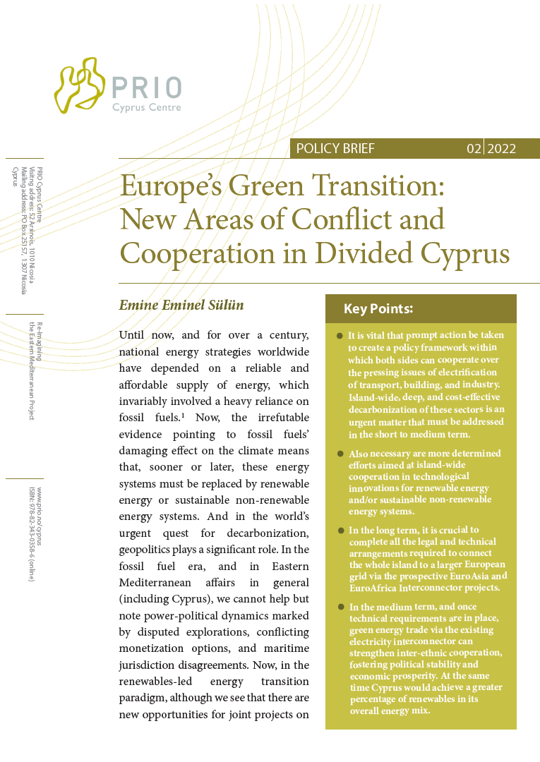Until now, and for over a century, national energy strategies worldwide have depended on a reliable and affordable supply of energy, which invariably involved a heavy reliance on fossil fuels. Now, the irrefutable evidence pointing to fossil fuels' damaging effect on the climate means that, sooner or later, these energy systems must be replaced by renewable energy or sustainable non-renewable energy systems. And in the world's urgent quest for decarbonization, geopolitics plays a significant role. In the fossil fuel era, and in Eastern Mediterranean affairs in general (including Cyprus), we cannot help but note power-political dynamics marked by disputed explorations, conflicting monetization options, and maritime jurisdiction disagreements. Now, in the renewables-led energy transition paradigm, although we see that there are new opportunities for joint projects on issues such as cross-border regulations and joint investments, we also fear the clean energy transition may lead once again to competition and confrontation in Cyprus. To avoid this, there must be a commitment to island-wide and regional energy market integration and cooperation, and with a greater focus on policies guided by climate neutrality.
Eminel Sülün, Emine (2022) Europe’s Green Transition: New Areas of Conflict and Cooperation in Divided Cyprus, PRIO Cyprus Centre Policy Brief, 2. Nicosia: PRIO Cyprus Centre.






